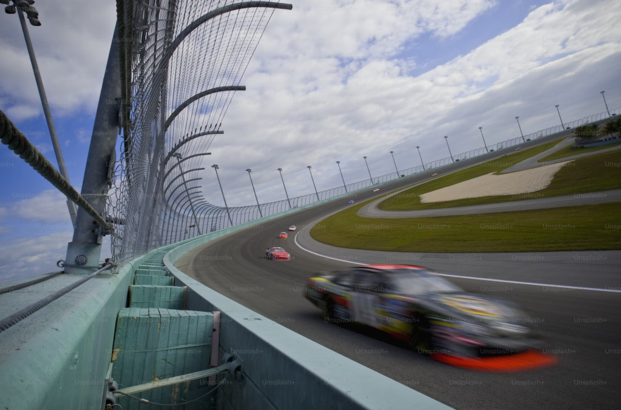Motorsport has always been a thrilling spectacle, pushing the boundaries of human and machine. But alongside the roar of the engines and the checkered flag finish, there’s another element that’s grown in prominence: motorsport betting. From its humble beginnings to the global phenomenon it is today, the way we wager on racing has undergone a dramatic transformation.
From Backroom Bets to Licensed Bookmakers
In the early days, motorsport betting existed on the fringes. Races, particularly horse racing, attracted informal wagers placed through bookmakers, often operating outside the law. The rise of organized motorsport like Formula One in the 20th century saw a shift towards licensed betting shops. These brick-and-mortar establishments offered a more controlled environment for placing bets, typically on race winners or simple win/lose propositions.
The Digital Revolution and the Rise of Online Betting
The arrival of the internet in the late 20th century revolutionized motorsport betting. Online sportsbooks emerged, offering greater accessibility and convenience. Fans could now place bets at anytime, with a wider range of markets available for fans in the UK, Germany and this list provided by bestsportsbettingcanada.ca serving Canadians. This included pre-race wagers on everything from podium finishes to qualifying positions, as well as the introduction of in-play betting, allowing wagers to be placed as the race unfolds.
A World of Choice: Diverse Markets and Competitive Odds
The online revolution brought with it an explosion of choice. No longer limited to a handful of bets offered by the local bookie, punters (bettors) could now access a vast array of markets. They could bet on individual driver or team performance, pit stop strategies, safety car deployments, and even the fastest lap. Additionally, increased competition among online sportsbooks led to more competitive odds, giving bettors the chance to maximize their potential winnings.
Mobile Betting: Wagering on the Go
The rise of smartphones further transformed motorsport betting. Mobile apps allowed fans to place bets with ease, keeping them connected to the action no matter where they were. Live streaming of races became commonplace, allowing viewers to not only follow the action but also place in-play bets strategically based on the real-time developments.
The Legalization Landscape
The legality of motorsport betting has also undergone significant changes. For many years, strict regulations limited its reach. However, the tide began to turn in the early 21st century, with several countries legalizing and regulating sports betting, including the landmark decision by the US Supreme Court in 2018. This has opened up new markets and fueled further growth in the industry.
Data, Analytics, and the Rise of the Informed Bettor
The digital age has also empowered the bettor. A wealth of data and statistics on drivers, teams, and past races is now readily available online. Advanced analytics tools help fans identify trends, make team predictions and leads to more informed bets. Social media platforms allow fans to connect with other bettors, share insights, and build communities.
The Future of Motorsport Betting
As technology continues to evolve, so too will motorsport betting. Virtual reality experiences could place viewers right in the heart of the action, while artificial intelligence might offer personalized betting recommendations. The same technologies used in online and anonymous casinos worldwide to immerse the players in the experience. Integrating blockchain technology could lead to more secure and transparent wagering systems.
The Impact on Motorsport
The growth of motorsport betting has had a profound impact on the sport itself. Increased wagering has boosted revenue streams for teams and series, allowing for further investment in technology and development. Sponsorships from betting companies have become commonplace, providing additional financial support.
However, the rise of betting has also sparked concerns. Match-fixing scandals, while rare, highlight the potential for corruption. Ensuring the integrity of the sport is paramount, and regulatory bodies must remain vigilant. Additionally, responsible gambling practices need to be promoted to prevent problem gambling.
Conclusion
Motorsport betting has come a long way from its backroom beginnings. Today, it’s a thriving global industry, offering a multitude of ways for fans to engage with their favorite sport. As technology continues to advance, the future of motorsport betting promises even more innovation and excitement, but it’s crucial to find the right balance between growth and ensuring the integrity of the sport that fans love.

